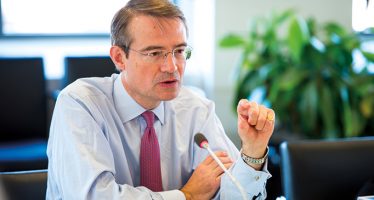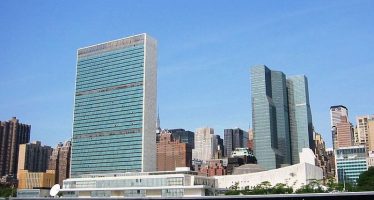Colombia Comes Together to Overcome Its Past
Maybe the Greeks could learn a thing or two from the Colombians.
The change in Colombia over the past ten years is remarkable. Financially Colombia was the “Greece” in Latin America. Its debt was classified as “junk bonds” by the rating agencies but Colombia did not just face economic problems, drug financed guerrilla forces controlled vast areas of the country.
Young people were leaving in droves and they did not just face Colombia’s economic problems. Kidnapping was a daily occurrence, nobody dared to go by road from Bogota to Medellin – a journey of less than 150 miles. The murder rate was the highest in the world, including nations at war: 76 per 100,000 inhabitants.
The turning point took place in October 2002 when the newly elected President Alvaro Uribe left the three main guerrilla groups including the FARC in no doubt that he was serious about enforcing state authority.
He authorised Operation Orion and retook control of a neighbourhood in Medellin, 3,000 troops backed by tanks and helicopters took part and after five days of fighting the army has retaken the neighbourhood and the tide had turned. The US poured in $6 billion in money, training and equipment and the popular president now had the tools to win not just the battle but the war. The murder rate is now less than a third of the figure in 2000 and kidnapping rates have dropped by over 90%.
The challenges faced by the economy were no less daunting but the results have been every bit as impressive as the improvements in crime figures. Public debt is now classified as “investment grade”. Colombia is the only Latin American country not to have asked to renegotiate its debt over the past century. Bogota have never engaged in Keynesian solutions but has relied on consensus within the population and leaders for liberal policies that have unbridled private investment.
This recovery has not led to a social crisis, quite the contrary. The proportion of poor people surviving on less than $ 2 a day fell from 50% to 37% in ten years and unemployment, which hit a fifth of the population, was halved
The oldest democracy in Latin America is now a favourite for investors; a position that will only improve after the free trade agreement with Washington came into force on the 15th May, after five years of procrastination and 14 refusal from Congress! The European Union are expected to ratify a similar agreement later this year.
The GDP per capita has risen from just over $2000 ten years ago to over $7000 allowing Colombia to apply for membership of the OECD.
Business has not only been benefiting from the improved stability and economic outlook but they have been actively helping Colombia achieve this transformation. Many Colombian companies take their CSR activities very seriously. Pacific Rubiales Energy Corp, the largest independent gas and oil exploration and Production Company in Colombia, for example have built an excellent Social programme that not only provides funding for projects but actively engages staff in supporting their efforts. Colombians are starting taking to take real pride in their countries future.
There are still problems that need to be overcome. The taxation system needs reforming, infrastructure is desperately needed, wealth needs to be dispersed more effectively and crime is still an issue but the overall outlook is very positive and if the number of tourist visiting Colombia each year is anything to go by its not just Colombians who are optimistic.
You may have an interest in also reading…
Air Travel Growth Continues to be Driven by BRICS Members and South East Asia
Asia leads the world’s growth in air travel and holds seven out of the ten busiest inter-city routes. In addition
Gavin Wilson, CEO IFC AMC: Mobilising Private Capital for Sustainable Development
Building and upgrading the infrastructure to underpin sustainable development in emerging markets and elsewhere requires additional investments estimated at around
UN Downgrades Economic Forecasts for 2013/14
World economic growth has weakened considerably during 2012 and is expected to remain subdued in the coming two years, according


















































































